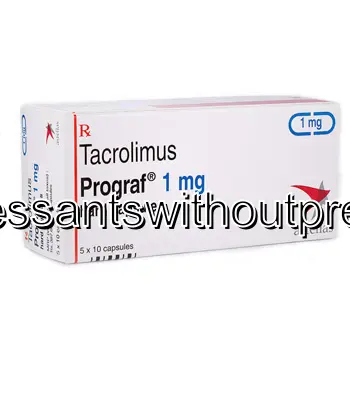| Package | Dosage | Price | Price per Dose | |
|---|---|---|---|---|
| Dosage: 0,5mg | ||||
| 90 pill | 0,5mg | €487.56 | €5.41 | |
| 60 pill | 0,5mg | €346.49 | €5.78 | |
| 30 pill | 0,5mg | €193.10 | €6.44 | |
| 20 pill | 0,5mg | €135.58 | €6.78 | |
| 10 pill | 0,5mg | €72.57 | €7.31 | |
| Dosage: 1mg | ||||
| 90 pill | 1mg | €684.78 | €7.61 | |
| 60 pill | 1mg | €490.30 | €8.18 | |
| 30 pill | 1mg | €288.97 | €9.61 | |
| 20 pill | 1mg | €215.01 | €10.74 | |
| 10 pill | 1mg | €120.51 | €12.11 | |
| Dosage: 5mg | ||||
| 20 pill | 5mg | €653.28 | €32.64 | |
| 10 pill | 5mg | €365.67 | €36.55 | |

Tacrolimus Description
Introduction to Tacrolimus
Tacrolimus is a potent immunosuppressive medication used primarily to prevent organ rejection in transplant recipients. It belongs to the class of drugs known as calcineurin inhibitors, which work by suppressing the activity of T-lymphocytes, a critical component of the body's immune response. This suppression helps ensure that the body does not attack the transplanted organ, thereby increasing the chances of long-term graft survival.
Mechanism of Action
At the core of Tacrolimus’s effectiveness is its ability to inhibit calcineurin, an enzyme involved in activating T-cells. When T-cells are suppressed, the immune system becomes less capable of recognizing the transplanted organ as foreign. This targeted action makes Tacrolimus highly effective in transplant cases. However, because it suppresses the immune system broadly, it also increases the risk of infections and other complications. The medication is usually administered orally in the form of capsules or as an intravenous formulation, depending on the clinical situation.
Clinical Uses
Besides its primary role in transplant medicine, Tacrolimus is sometimes prescribed for certain autoimmune diseases, such as severe cases of eczema or psoriasis. In such cases, doctors carefully weigh the benefits and risks because of its immunosuppressive nature. The medication is carefully monitored during treatment to ensure therapeutic levels are maintained, avoiding both under-dosing and toxicity.
Potential Benefits
One of the main advantages of Tacrolimus is its high efficacy in preventing organ rejection. Patients who adhere to the prescribed dosage regimen often experience better graft longevity. Additionally, Tacrolimus tends to have fewer side effects related to toxicity compared to some other immunosuppressants. Its targeted mechanism means that it provides strong immunosuppression with manageable adverse effects under proper medical supervision.
Possible Side Effects
Despite its benefits, Tacrolimus can cause several side effects. Common issues include headaches, tremors, and gastrointestinal symptoms such as nausea or diarrhea. More serious side effects can involve kidney toxicity, high blood pressure, or increased risk of infections due to immune system suppression. Some patients may also experience neurological effects or allergic reactions. Because of these potential risks, regular blood tests are essential during treatment to monitor drug levels and organ function.
Precautions and Considerations
Using Tacrolimus requires careful medical oversight. Patients should inform their healthcare provider of any other medications they are taking, as drug interactions are common and can affect Tacrolimus levels. For example, certain antifungal or antibiotic drugs may increase or decrease its effectiveness. Additionally, pregnant or breastfeeding women should discuss the potential risks, as safety data is limited. Patients should also be cautious about exposure to infections and practice good hygiene to minimize risks during therapy.
Patient Experience and Recommendations
Many users report that Tacrolimus effectively prevents rejection when used as prescribed. However, adherence to the medication schedule is vital for optimal results. Some users might experience side effects that resolve over time or with dose adjustments. It is crucial to maintain regular follow-up appointments, undergo necessary tests, and communicate any unusual symptoms to healthcare providers promptly.
Conclusion
Tacrolimus is a vital medication in the field of organ transplantation, offering hope for better long-term outcomes. While it provides significant benefits in preventing rejection, careful management is necessary to mitigate adverse effects and ensure safety. Patients should always follow medical advice closely and report any concerns during therapy to maximize the positive effects of the medication.
